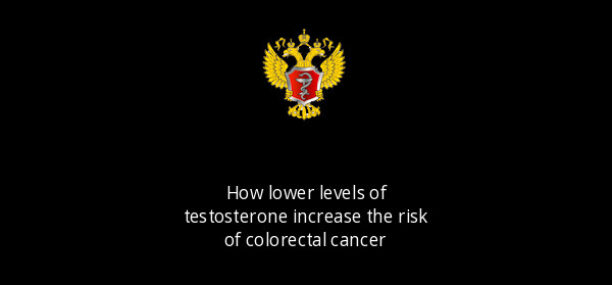How lower levels of testosterone increase the risk of colorectal cancer
Some studies have suggested that lower levels of testosterone may be associated with an increased risk of colorectal cancer.
One possible explanation for a link between low testosterone levels and colorectal cancer is that testosterone has anti-inflammatory properties and may help to reduce inflammation in the gut. Chronic inflammation is a known risk factor for colorectal cancer, so lower levels of testosterone may increase the risk of cancer by promoting inflammation.
Additionally, testosterone may also play a role in regulating the growth and proliferation of cells in the colon. Studies have suggested that testosterone receptors are present in colorectal tissue and that testosterone may help to regulate the growth and division of colon cells. Thus, lower levels of testosterone may lead to uncontrolled growth and division of colon cells, which could increase the risk of cancer.
It is important to note that the relationship between testosterone levels and the risk of colorectal cancer is not yet fully understood, and further research is needed to clarify this relationship.
Why current americans have lower levels of testosterone compared to americans 30 years ago
There is some evidence to suggest that average testosterone levels in men in the United States may have declined over the past few decades. However, the exact reasons for this decline are not fully understood, and the evidence is not conclusive.
Some possible explanations for the decline in testosterone levels include changes in lifestyle factors such as diet, exercise, and sleep patterns. For example, there is some evidence to suggest that the Western diet, which is high in processed and sugary foods, may be associated with lower testosterone levels. Additionally, sedentary lifestyles and lack of exercise may also contribute to lower testosterone levels.
Other possible factors that may contribute to the decline in testosterone levels include exposure to environmental toxins and chemicals, increased stress levels, and changes in sexual behavior. However, more research is needed to fully understand the reasons for the decline in testosterone levels and the potential health implications of this trend.
It is important to note that while the decline in testosterone levels may be concerning, it is not necessarily indicative of a widespread health crisis. Some experts have suggested that the decline in testosterone levels may be a natural adaptation to modern living conditions, rather than a cause for alarm
What changes in sexual behavior lead to lower levels of testosterone in current americans?
There is some evidence to suggest that changes in sexual behavior may be associated with lower levels of testosterone in current Americans. One major factor is a decrease in sexual activity, including both frequency of sexual encounters and number of sexual partners. Studies have found that men who have fewer sexual partners or less frequent sexual activity tend to have lower testosterone levels compared to men who are more sexually active.
Additionally, there is some evidence to suggest that exposure to sexually explicit material, such as pornography, may also be associated with lower testosterone levels. Some studies have found that men who view pornography frequently may experience a reduction in testosterone levels over time.
It is important to note that the relationship between sexual behavior and testosterone levels is complex and not fully understood. Other factors, such as lifestyle, diet, exercise, and genetics, may also play a role in testosterone levels. Additionally, while low testosterone levels can have negative health consequences, such as decreased libido and muscle mass, it is not necessarily indicative of poor overall health.
Verified by: Dr.Diab (March 29, 2024)
Citation: Dr.Diab. (March 29, 2024). How lower levels of testosterone increase the risk of colorectal cancer. Medcoi Journal of Medicine, 4(2). urn:medcoi:article32996.














There are no comments yet
Or use one of these social networks